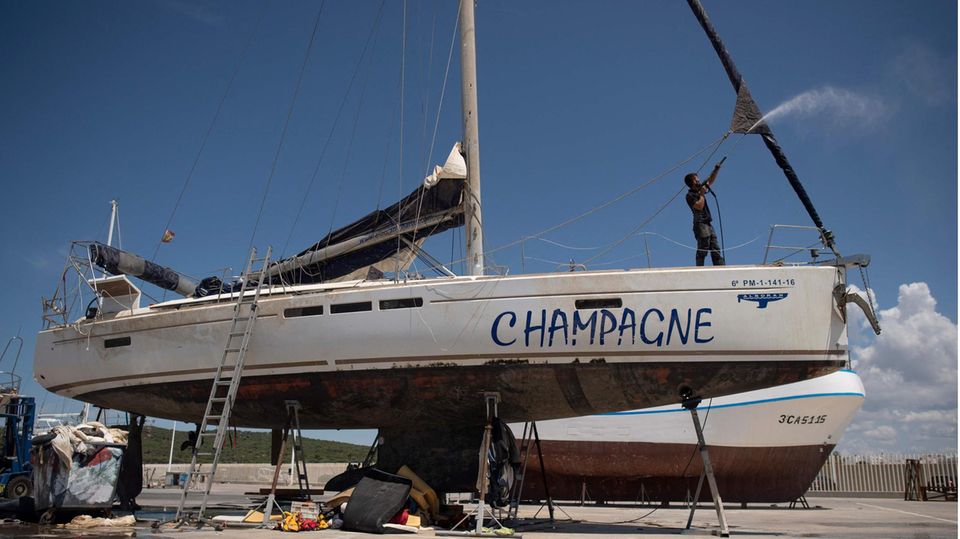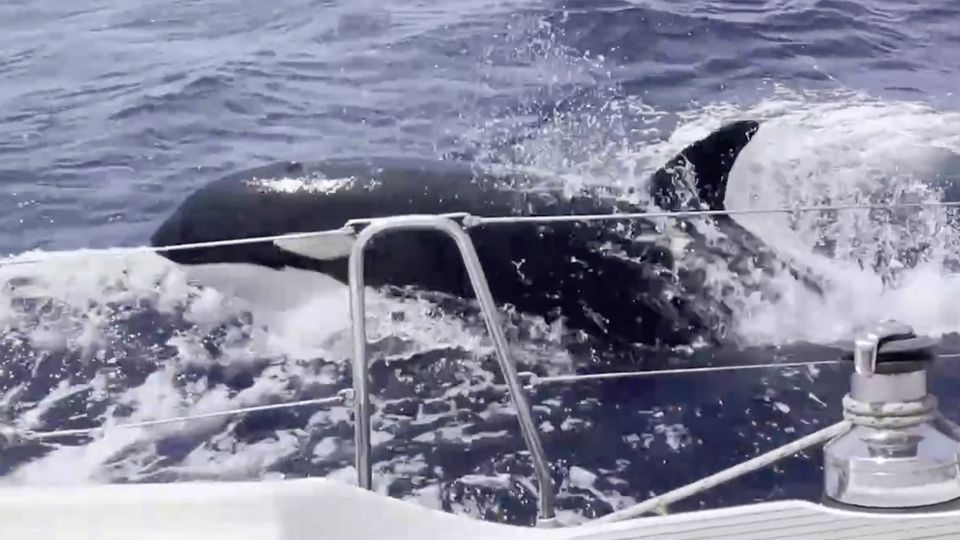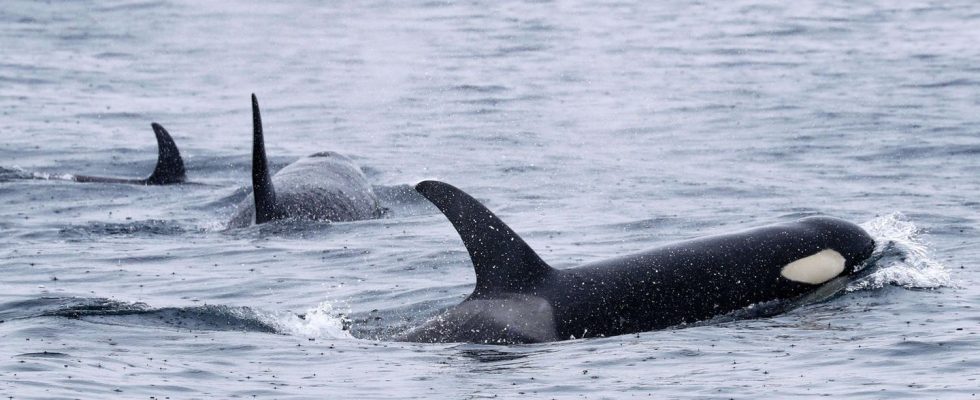Sailors tremble, researchers are puzzled: boats are being destroyed by orcas off the coasts of Spain and Portugal. What’s behind it? A whale lady is suspected of being the “instigator”.
The fear can still be seen in the voices and eyes of victims months after the horror trip. “It took a long time. Maybe half an hour. But it seemed like an eternity to us,” Andrea Fantini recently told Spanish television channel RTVE. Six or seven killer whales, also known as killer whales, attacked his racing yacht in the Strait of Gibraltar and “eaten up” the rudder blade, among other things, the boat captain reported, still visibly impressed.
Fantini saw a “very aggressive behavior” of the animals, which have been known to the general public at least since the “Free Willy” film series. Violent encounters with orcas (Orcinus orca), which can be up to ten meters long and often weigh more than five tons, were largely unknown until recently. Orcas also attack other sea giants: in addition to tuna, herring, penguins, seals and seabirds, they also eat dolphins, other whales and sharks. So far, however, they have not been aiming for boats
Media reports of orca attacks are increasing
Ship crews reported the first incidents in spring 2020. The crews often recorded the unpleasant encounters on video. You can then hear the screams of the surprised sailors: “Whoa, what a giant beast!”, “You scumbag!” and “He got us!”. Fantini’s boat was due in June 2022.
Media reports of orca attacks have been piling up this year. At least 53 have been registered since January, says biologist Alfredo López from the organization “GT Atlantic Orca” in an interview with the German Press Agency. Twelve boats were so badly damaged that they had to be towed away. However, it is still too early to be able to speak definitively about an increase compared to previous years.
But one thing is certain: the maritime rescue service repeatedly had to rescue affected crews in the Strait of Gibraltar in April and May. There were also incidents off the coast of Portugal and further north in the Atlantic off the Spanish region of Galicia. At the beginning of May, the Swiss boat “Champagne” even sank off Cádiz after an incident with orcas. It was “not really funny”, said skipper Werner Schaufelberger (72) to the “Blick” portal.
A solution must be found quickly, says Fantini. Otherwise, smaller ships would no longer be able to navigate the area between the Mediterranean and the Atlantic, between Europe and Africa. The phenomenon brings back memories of Frank Schätzing’s bestseller “The Swarm”. In the 2004 sci-fi thriller, a rebellion in nature – yes, a series of dangerous attacks from the sea – pushes the world to the brink of apocalypse.

The sailing yacht “Champagne” sank off Cádiz in early May after an incident with orcas. She is now being cleaned and repaired at the Pecci shipyard in Barbate.
© Jorge Guerrero / AFP
But why do so many orcas suddenly act like this? Researchers don’t know. They puzzle and sometimes contradict each other. López, a world-renowned marine biologist, has two theories. The first: The killer whales from the dolphin family might just have invented “something new”. They are highly intelligent, curious and very social beings who learn from their peers. It has already been observed in the past that individual orca groups have developed idiosyncratic habits.
“But it could also be a response to a negative experience,” says López. “That means one or more animals may have had a bad experience and are trying to stop the boats so it doesn’t happen again.” The expert suspects a mother orca of having initiated the attacks, which biologists prefer to call “interactions”. The whale lady also has a name: Gladis Blanca, White Gladis.

For example, she or one of her young could have been caught in a fishing net or hit by a boat. One of the things that speaks for a reaction to a negative experience is that Gladis Blanca even attacked boats with her newborn daughter in 2021. “The motivation that drives them to interact seems to be greater than the maternal protective instinct,” says López.
“Don’t criminalize” orcas
In contrast, Renaud de Stephanis believes that the orcas just want to have fun. “It is clear that these are games,” the president of the environmental organization Circe told RTVE. Younger animals have started this behavior, and now two mothers are also active, he assures. Expect the incidents to stop once the orcas get tired of this game.
Some marine biologists openly admit that they “don’t have a clue”. However, experts agree that the orcas should not be “criminalised”. “There are headlines in the press that blur reality,” López complains. He means headlines like “Rebellion of the orcas” or “Revenge of the killer whales”. “Rather, all of this must lead us to think that human activities could be the reason for this behavior,” López points out.
Shark Hunt on Lombok
Fishing for sharks is an environmental disaster. And big business in Indonesia
It is striking that while orcas live in oceans worldwide, the documented attacks took place in the relatively small area south and west of the Iberian Peninsula. According to estimates, a total of 35 to a maximum of 60 animals have been involved so far.
The recent reaction of the Ministry for Ecological Change in Madrid shows that the situation is serious for everyone involved. After driving bans for smaller boats with a ship length of up to 15 meters in certain sea zones had little effect, they started equipping individual orcas with GPS trackers last week in order to be able to locate them and warn captains.
López also refers to the information on his organization’s website. Captains would have to be better informed and choose alternative shipping routes, not sail at night and not stray too far from the coasts. “It is important to spread this information in the German ports as well, because many seafarers come from Germany and Northern Europe,” he emphasizes.

